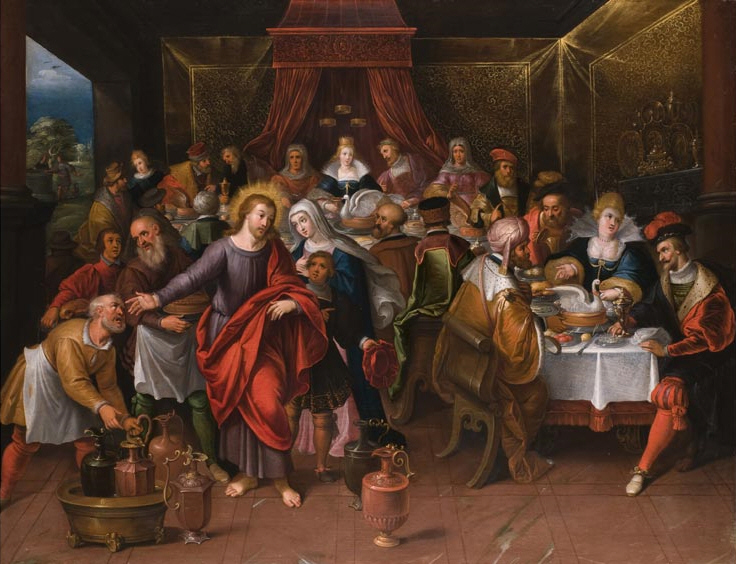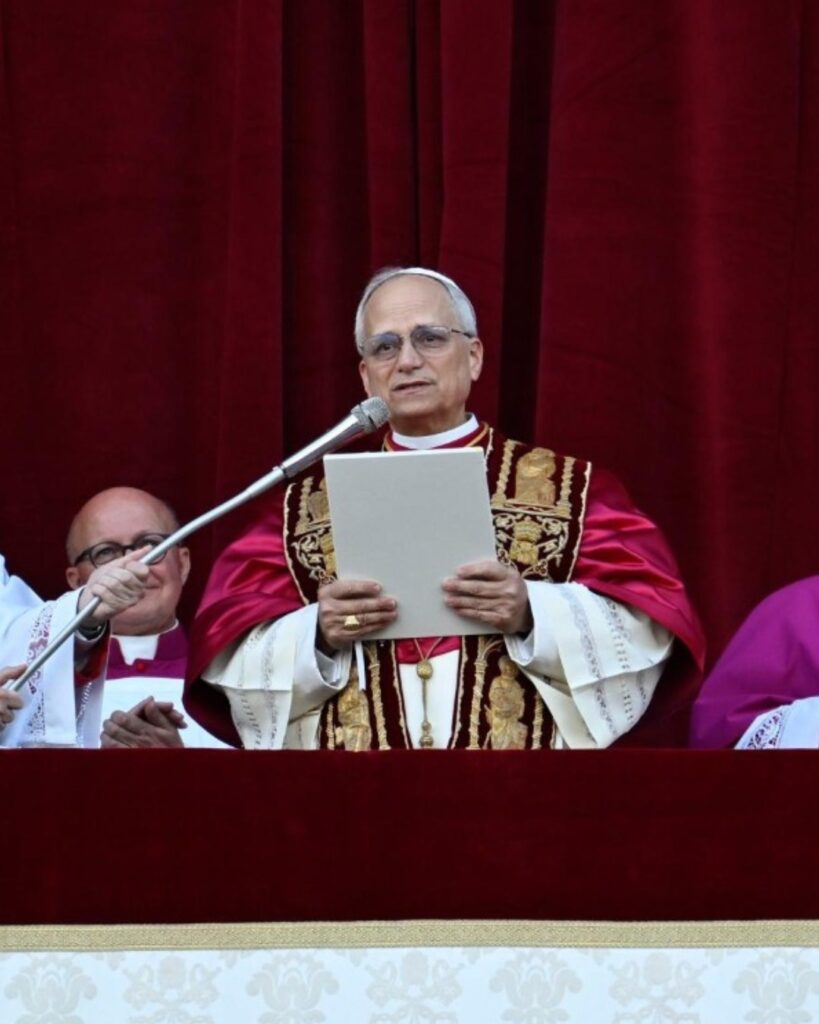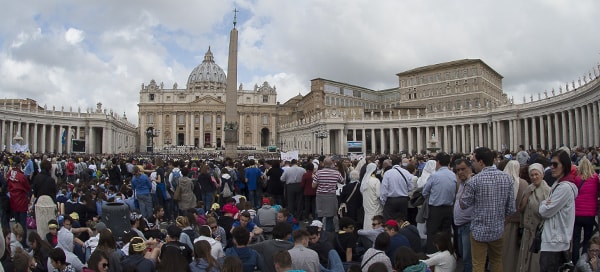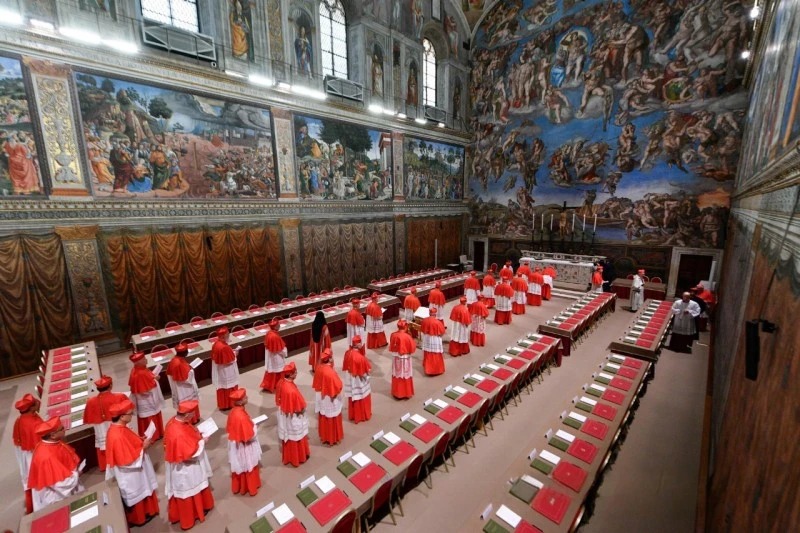Heschel Centre for Catholic-Jewish Relations at the Catholic University of Lublin
19 January, 2025
4 min
Jewish Scriptures Shed Light on the Event in Cana of Galilee
“Without knowing the Jewish Scriptures, we cannot understand the Gospel. If we misunderstand Jewish practices, we will also misunderstand Jesus”, writes Dr. Amy-Jill Levine, a professor of New Testament and Jewish Studies, in her commentary for the Heschel Center at the Catholic University of Lublin (KUL), for Sunday, January 19th. Dr. Levine is the first […]

“Without knowing the Jewish Scriptures, we cannot understand the Gospel. If we misunderstand Jewish practices, we will also misunderstand Jesus”, writes Dr. Amy-Jill Levine, a professor of New Testament and Jewish Studies, in her commentary for the Heschel Center at the Catholic University of Lublin (KUL), for Sunday, January 19th. Dr. Levine is the first Jewish scholar to lecture on the New Testament at the Pontifical Biblical Institute in Rome.
While the lectionary begins, “There was a wedding at Cana…,” John 2 begins, “On the third day”; the lectionary cuts off John’s appeal to Israel’s Scriptures. The phrase “the third day” occurs first in Genesis 22.4; it was on the third day when Abraham saw the “mountain of the Lord” where he was to sacrifice his son Isaac. In Jewish tradition, this location Mt Zion, where the Jerusalem Temple stood. Exodus 19.11 states that on the third day, G-d appeared on Mt. Sinai and gave the Torah to Israel. Hosea 6.2 exhorts the people to “return to the Lord,” for “after two days he will bring us to life, and on the third day he will raise us up, that we may live before him.” More, it will be on the third day that Jesus, according to the Gospels, is raised.
For John, Jesus is like Isaac, and he is like Moses. For John, understanding Jesus requires understanding Israel’s Scriptures. Next, weddings also connect Jesus to Jewish tradition. Israel’s Scriptures describe God as Israel’s bridegroom or husband. The first reading for today, the second Sunday in Ordinary time, Isaiah 62.1-5, includes the line, “as a bridegroom rejoices in his bride so shall your God rejoice in you.” Further, the good wine Jesus provides the wedding at Cana is a foretaste of the messianic banquet, when, as Isaiah 25.6 proclaims, “The Lord of hosts will make for all the peoples on this mountain a feast of rich food, a feast of well-aged wines, of rich food filled with marrow, of well-aged wines strained clear.” Isaiah 25 goes on to announce that God “will swallow up death forever.” John 2 is a midrash on Isaiah 25; again, to understand the Gospel requires understanding the earlier Scripture.
Finally, weddings are occasions when different families unite. The Psalm for today celebrates, “Proclaim his marvelous deeds to all the nations.” Proclaiming healings or walking on water, exorcisms or resuscitations, are all to the good, but having the first sign be at a wedding, to show Jesus’ attention to his mother, to spare people of social embarrassment – are experiences to which everyone can relate. The proclamation is not just about global issues; it is not just about “Tremble before him, all the earth”; it is about personal issues, private issues. The Gospel speaks to personal concerns.
John 2.3 states, “When the wine ran short, the mother of Jesus said to him, “They have no wine.” The mother uses a form of speech known as an “indirect request.” The same formulation appears in John 11, when Mary and Martha send word to Jesus about Lazarus, “Lord, look! The one whom you love is ill.” The mother expects Jesus to do something about the wine, just as the sisters expect Jesus to do something about their brother.
In John 19.28, as Jesus is dying, he says, “I thirst.” This is another indirect request. Jesus thirsts, not simply for something to drink, but to be in communion with his followers. Jesus responds to his mother, “Woman, how does your concern affect me?” (2.4). He calls the Samaritan at the well (4.21), his mother again at the cross (19.26), and Mary Magdalene at the tomb (20.13, 15) “woman.” The repetition emphasizes women’s roles. The Gospel cannot be told without them. Despite Jesus’ abrupt response, his mother says to the servers, “What he tells you, do” (2.5).
I like Jesus’ mother (one Jewish mother to another). She knows her son. Notably, the term John uses for these servers is diakonoi, whence “deacons.” These deacons both listen to Jesus and listen to a woman, his mother. These deacons in fact likely included women, since the Greek masculine plural can include women. Similarly, in Romans 16.1 Paul mentions a woman named Phoebe, a “deacon of the assembly (ekklesia) at Cenchreae,” which is the port of Corinth.
Finally, vs. 6 mentions that there were six stone water jars there for Jewish ceremonial washings.” Many Christian commentaries claim that by turning water into wine, Jesus eliminates Jewish purity practices and so replaces law with grace. This view is nonsense. Everyone at the wedding had already washed. The meal is in full swing, so much so that all the wine has been consumed. This is why Jesus instructs the servants to “fill” the vessels.
Chalkstone or limestone vessels, which unlike ceramics are impervious to impurity, are found in archaeological digs throughout lower Galilee. Chalkstone vessels, aniconic coins, ritual bathing pools, etc., all helped Jews celebrate their distinctive way of life, despite Roman pressures to assimilate. The concern for washing is also found in the Catholic practice of lavabo. Without knowing the Jewish Scriptures, we cannot understand the Gospel. If we misunderstand Jewish practices, we will also misunderstand Jesus.
Related

The Alliance Between Friendship, Recognition of the Other, and Technology
Observatorio de Bioética UCV
09 May, 2025
13 min

Leo XIV: “Peace be with you all”
Exaudi Staff
08 May, 2025
5 min

The True Conclave
P Angel Espinosa de los Monteros
08 May, 2025
3 min

The Conclaves of History: The Holy Spirit Guiding the Barque of Peter
Exaudi Staff
08 May, 2025
8 min
 (EN)
(EN)
 (ES)
(ES)
 (IT)
(IT)

